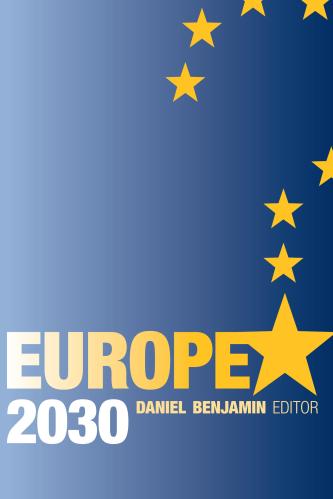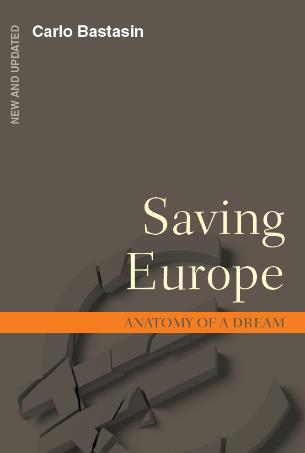The following is an excerpt from Reopening the World: How to Save Lives and Livelihoods, a new report where Brookings experts offer ideas to help policymakers protect lives and save livelihoods in the midst of the current COVID-19 pandemic.
 Greece surprised the world by emerging as a paradigm of crisis management in its response to the coronavirus. Despite a decade of contraction and austerity, an aging population (EU’s second oldest after Italy), and a resource-constrained healthcare system (8 percent GDP spending vs. the EU’s 10 percent), the government’s strategy has been a textbook case of swift and responsible action against a public health crisis.
Greece surprised the world by emerging as a paradigm of crisis management in its response to the coronavirus. Despite a decade of contraction and austerity, an aging population (EU’s second oldest after Italy), and a resource-constrained healthcare system (8 percent GDP spending vs. the EU’s 10 percent), the government’s strategy has been a textbook case of swift and responsible action against a public health crisis.
That same strategy should also guide Greece’s efforts to reopen. With the summer season underway, critical questions emerge regarding tourism—a pillar of Greece’s economy. Tourist activity will determine the size of the crisis’s economic impact to the country. However, moving too quickly could not only pose health risks, but also undermine Greece’s new sense of achievement.
WHAT WAS DIFFERENT ABOUT THE GREEK APPROACH
Trusting experts. The government appointed epidemiologist Dr. Sotiris Tsiodras to lead a team of public health experts. Prime Minister Kyriakos Mitsotakis prioritized science over politics and encouraged the team to communicate directly with the public. Dr. Tsiodras—a low-key, soft-spoken, fairly unknown figure until recently—quickly became a household name and, for many, the most beloved face in the country. This was a dramatic turn after a decade where political leaders across the spectrum had accepted difficult economic policy choices but had played to populist emotions by publicly blaming experts—from Brussels bureaucrats to local finance and tax officials. In contrast, public health experts were trusted and elevated.
Speed. Following experts’ recommendations, and seeing transmissions elsewhere, the government took rigorous restrictive measures early on. Italy suffered its first death on February 22, but waited to impose regional measures until March 8, and extended them nationally on March 10. In Spain, nationwide efforts were imposed on March 13— following over 100 deaths and after allowing over 100,000 people to march through central Madrid on March 8. Greece’s first measures—canceling carnival festivities—were imposed on February 27, two weeks before its first death. When Greece announced a full lockdown on March 22, it had 624 confirmed cases and 15 deaths. The United Kingdom announced its lockdown on the same day after 6,650 confirmed cases and 335 deaths.
Transparency, clear communication, and enforcement. Through daily televised briefings held by Dr. Tsiodras and the civil protection minister, and frequent addresses by Prime Minister Mitsotakis, the state achieved general public support. Authorities shared evidencebased analysis in a timely fashion and managed expectations with respect to next steps, while continuously updating the public on the spread of the virus and reminding them of imminent dangers. As important, Greek police enforced restrictions on those who failed to notify authorities when leaving their homes, even for essential errands such as trips to the grocery or pharmacy.
Strengthening public health. The Mitsotakis administration took drastic measures to strengthen the country’s fragile public healthcare system. Between February and May, it recruited into the public health system over 3,500 medical professionals, many of whom were unemployed or recent graduates. It invested in ICU capacity by adding new units and mobilizing existing ones in private hospitals. It also improved testing capabilities, increased epidemiological surveillance, and helped advance clinical trials for a vaccine. Greek officials developed a robust monitoring and intervention mechanism, isolating anyone who entered the country.
Whole-of-society approach. The government worked with foundations, industry associations, and the private sector to secure much needed resources and to support the hardest hit communities. For instance, the government expanded the supply of personal protective equipment (PPE) by securing major philanthropic grants, encouraging companies to shift to PPE production, securing corporate donations, and working with local 3D-printing vendors to produce healthcare equipment.
Defying cultural norms. Determined to preserve public health, the government directly confronted the Greek Orthodox Church prior to Easter Week celebrations. The Church insisted that diseases could not be contracted from Holy Communion (which priests dispense using a common spoon). Doctors, scientists, and even Mitsotakis himself through an emotional televised address called on them to listen to science. Ultimately, the government issued a decree ordering all Easter liturgies to resume behind closed doors, livestreaming them to the public.
Collectively, these coordinated actions resulted in a transmission rate (or R0) of well below 1, which led to lower hospitalizations and fatalities compared to the rest of Europe—especially Italy, Spain, and Portugal. As an illustration, ICU cases reached less than 10 percent of its system-wide capacity at their peak in April, enabling health professionals to give their full attention to severe COVID-19 cases. The early procurement of PPE meant that very few healthcare professionals were infected—and not a single one at the main hospital for COVID-19 in Athens.
Not everything was perfect. As elsewhere, both government performance and public compliance improved as the crisis unfolded. Greece was aided by a smaller population and more centrally managed government than Italy, Spain, and the UK. But Greece also managed a very large and complicated geography, a history of public noncompliance, and an ongoing refugee crisis. On the whole, Greece demonstrated consistency in focus and resolve.
TURNING ON THE DIMMER SWITCH
On May 4, Greece embarked on a two-month phased journey to reopening. Mitsotakis has recognized that returning to social and economic activity cannot occur using an “on-and-off” switch; instead, it must be done through a dimmer switch, with the reinstatement of protective measures when necessary. Greek authorities have been updating projections daily and recommending adjustments as needed.
In 2019, Greece welcomed 34 million visitors (three times the country’s population) who directly contributed 18 billion euros in revenue (~10 percent of GDP) and supported 850,000 jobs (~22 percent of employment), with multiplier effects estimating GDP contributions of up to 25 percent. But at a time of severe global uncertainty, Greece’s overdependence on tourism could become its Achilles’ heel. For 2020, the European Commission estimates revenue losses in Europe to be 50 percent for hotels and restaurants, 70 percent for tour operators and travel agencies, and 90 percent for airlines and cruise companies.
About 80 percent of Greece’s tourism business profits are earned in July and August. The government plans to market Greece as a coronavirus-safe destination and to start welcoming tourists on June 15, initially opening to countries that have had relative success in containing the virus. Even so, according to the minister of tourism, in the best case Greece must expect a 50 percent hit in tourism receipts—or 5 percent direct hit to its GDP. This best-case scenario will be difficult to achieve. Harder still will be responding to incidents that will invariably develop without risking a large-scale outbreak.
WHAT GREEK SUMMER 2020 COULD LOOK LIKE
Tourists will travel if they feel it to be safe. Safety will come from a combination of social distancing, effective and immediate treatment of those who become sick, and contact tracing.
Social distancing. Greek vacations would need to emphasize the residential and outdoor experience, minus the social mixing that has made it increasingly popular. The crowded and bustling streets of Greek cities, ports, and island towns— especially at night—would need to be significantly curtailed. The compulsory use of masks would help restore confidence among international visitors, protect local populations, and limit the risk of new infections. Key tourist areas would need to self-comply, including hotels, souvenir shops, restaurants, beaches, marinas, ferries, and public transport.
Effective and immediate treatment. Remote locations would need to have clear plans on how to treat patients with varying degrees of illness. These would include on call doctors for all hotels, telemedicine options, and access to quarantined structures exclusively hosting COVID-19 cases. Such protocols should be accompanied by frequent checks to ensure compliance.
Tracing. Introducing health passports, providing visitors with electronic bracelets upon entry, and encouraging cellphone-tracing applications are all options worth exploring. Such initiatives may be expensive and complicated to implement on short notice, but they are achievable, especially if strict protocols are established early on at points of entry (airports, ports, and land borders).
Promotion. A public advertising campaign that builds on #greecefromhome, a major outreach initiative created amid COVID-19 to enable people to explore Greece virtually, would help reassure potential visitors that their health is a top priority (#safegreece or #healthygreece are brands to consider).
This is a truly golden opportunity to re-imagine Greek travel. But it is also a golden opportunity to set new global standards.
TOURISM DIPLOMACY
The Greek government has explicitly requested from EU partners to work together on setting common standards for travel. The government hopes that best practices can be shared, creating common expectations among tourists. Initiatives such as the newfound nine nation alliance with Australia, Austria, the Czech Republic, Denmark, Israel, New Zealand, Norway, and Singapore— countries that have contained the spread of COVID-19 and are exploring partnerships to revive their economies—could be instrumental in harmonizing processes, boosting business ties, and reopening travel. With two-thirds of its tourism currently coming from EU member states and one-third from just four countries—Germany, the UK, France, and Italy—such efforts could help Greece diversify its tourist markets and countries of origin.
Promoting travel schemes with countries sharing a land border with Greece (and continue to have low infection rates), such as Bulgaria and North 105 Macedonia, should be prioritized. Facilitating road tourism would help revive the economies of cities in northern Greece. Keeping the private yacht industry alive would help attract high-end tourists seeking hygienic, controlled, and self-contained environments. Furthermore, encouraging those considering cancelations to rebook for off-season months would help extend the tourist season.
This is a truly golden opportunity to re-imagine Greek travel. But it is also a golden opportunity to set new global standards. After showing the world how to successfully lock down, Greece can do the same with reopening.
The Brookings Institution is committed to quality, independence, and impact.
We are supported by a diverse array of funders. In line with our values and policies, each Brookings publication represents the sole views of its author(s).










Commentary
Reopening the World: Responsibly reopening Greece
June 16, 2020